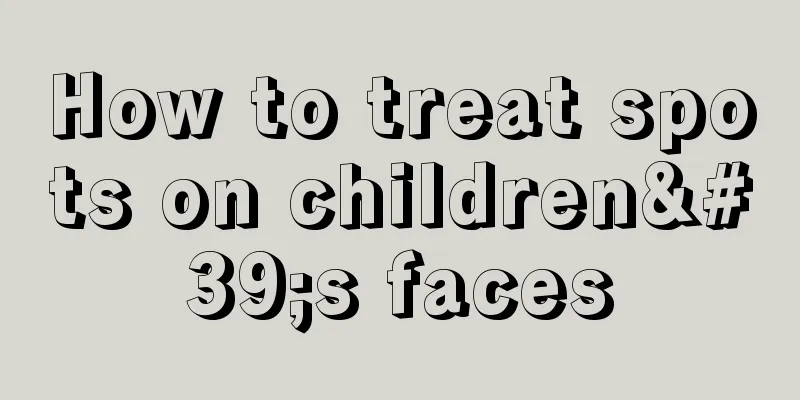What is the reason for children's nasal mucus?

|
Children have relatively low resistance and will get sick if affected by some external environment. Most of them are caused by colds and fevers. Children will have runny noses after catching a cold. If the runny nose is not treated in time, it will become more and more, blocking the nose and making breathing difficult, which will affect the baby's healthy growth and will cause constant crying. Therefore, you should always pay attention to the baby's condition. Here are some reasons why children have a lot of runny noses! 1. First, getting angry. Second, the baby has mild choking or spitting up of milk. Third, the house is relatively dry or dusty. If the baby is suffering from heat, mothers should be careful not to cover the baby too much. Try to keep other parts of the body cool while ensuring that the baby's belly and feet are warm. If it is caused by choking on milk, the mother should pay attention to observe whether the baby twists and turns, has a red face, red eyes, or rapid breathing after feeding. Sometimes the baby's mild choking and spitting up of milk does not come out of the mouth. A small amount of milk will directly rush into the nasal cavity, which will stimulate the nasal cavity and produce nasal mucus. The mother should remember to burp the baby after feeding. If you cannot burp the baby in time, let the baby stay upright for a while, the breathing will be smoother and choking will be reduced. It is unlikely that your home will be dry or dusty given current living conditions, but it is more likely in winter, especially in homes with floor heating, as dust is most likely to rise with the heat. At this time, just pay attention to cleaning and use a humidifier appropriately. 2. 1. If the baby's nasal mucus is hard, drop a few drops of sesame oil into the nose before cleaning it. This will lubricate the mucus and prevent it from sticking to the nose hair, so as to avoid pulling out the baby's nose hair when picking the mucus, causing pain.2. You can also apply a hot towel to the baby's nose to use the heat to soften the baby's nasal mucus. Repeat the hot compress several times, and it will be easier to clean without hurting the baby. 3. Then use a thin cotton swab to gently pick out the lubricated booger. Be careful not to insert too long into the baby's nostrils, which will cause discomfort to the baby and make the baby cry. If the booger is accidentally poked into the nasal cavity, do not dig it out. Wait for the booger to slowly slide out before cleaning it. 4. If the baby's nasal mucus is sticky, you can roll the toilet paper into a long and thin roll, slowly stuff it into the baby's nose, and gently turn it a few times. The baby's nasal mucus will stick to the toilet paper and be brought out.5. A safer method is to suck it out with a nasal aspirator, which is generally sold in maternal and child supply stores. When using it, pinch the back of the nasal aspirator according to the location and size of the booger, and the booger will be sucked out when you let go. But it won’t work on hard and dry boogers, so be careful not to hurt your baby when using it. |
<<: Children vomiting in the middle of the night with a sour smell
Recommend
What causes foamy stools in newborns?
Foamy stools in newborns are abnormal. Newborns d...
Coffee spots on children
Coffee stains are something that many people don’...
Treatment of drool rash in babies
After birth, children will gradually develop a di...
What to do if your 8-month-old baby has measles?
The baby's body is very prone to problems, es...
What should I do if my baby has a poor appetite?
Many children don’t like to eat. We often see thi...
What is the reason why children stutter?
Nowadays, many children often have stuttering pro...
Why is baby's stool green?
Generally speaking, the color of a baby's sto...
What is the effect of drinking glucose for babies?
Glucose is the most widely distributed monosaccha...
What are the symptoms of facial paralysis in children?
In life, everyone must be familiar with the term ...
Children have teeth growing on their gums. Parents, please see what to do!
Nowadays, many parents will find that the roots o...
What are the development standards for a three-month-old boy?
There are many issues that mothers need to pay at...
Can a three-year-old eat crabs?
When people talk about delicious food, they will ...
The child had a fever of 39 degrees after vaccination
Children are the apple of their parents' eyes...
At what age is it normal for children to lose their teeth?
We know that people will experience tooth replace...
What to do if your child has a cold stomach and vomits
Whether in winter or summer, it is easy to catch ...









